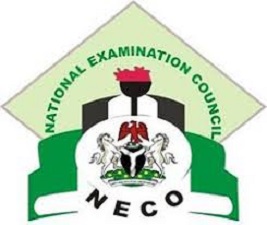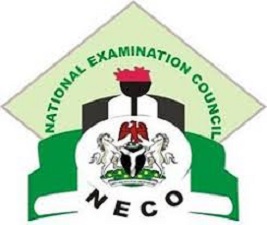Neco government answers 2021
Here is the neco Government answers for 2021, please share and enjoy.
1BDCBECBEAC
11ADDBBCEBDC
21CBCBECEEEA
31EEDAAEBACD
41CCAABDCDDD
51DBEAAADAAB
GOVERNMENT-THEORY
(1a)
authority can be defined as the ability to give a command and to ensure that people yield to the commandment.It is associated with the ability to make decisions and enforce it.
(1b)
(i) political authority: this is the power given to a group of people by the constitution to make decisions and enforce obedience.
(ii) traditional authority; this is the power legitimized and defined by customs and traditions. It is acquired through inheritance.
(iii) coercive authority: this is the of authority that nvolved the use of force.
(iv)delegated authority: this is the authority conferred on a subordinate to exercise certain powers on specified authority.
(v) charismatic authority: this type of authority is based on extra ordinary personal qualities of an individual.
(3)
(i) membership of international organization: such as U.N.O, AU, OPEC, ECOWAS etc which many nations belong to had placed serious limitations to the sovereignty of such nations.
(ii) influence of powerful nation: powerful countries like U.S.A, USSR, BRITAIN etc have a lot of influence on the external sovereignty of smaller and weaker nations.
(iii) external aids: many poverty stricken nations mortgage their external sovereignty for economic , military and technical assistance.
(iv) supremacy of the Constitution: no matter the institution or a body in which sovereignty is located , the power of such body or institution is limited by the Constitution of the state. No body is above the law of the land.
(v) diplomatic immunity: diplomats representing their countries in other countries of the world have diplomatic immunity. Some of their actions can undermine the sovereignty of their host states.
(4a)
socialization; this refers to a process by which citizens are educated on the values, attitudes and beliefs of the political system. Political culture of a the society is transmitted from one generation to another through political socialization.
(4b)
(i) the family: children from politically conscious families tend to be more politically aware and interested in politics.
(ii) the school: it is in schools people starts to learn and practice how to play political roles.
(iii) the peer groups; a person is known by groups he keeps. One’s view including political views are influenced by ones playmates and friends.
(iv) the mass media; this includes radio, television, newspaper etc. Mass media passes different education to the people including political education.
(v) religious groups: it is difficult to divorce politics from religion. The mosque and churches direct their members on the political course to follow.
SECTION B
(5)
(i) appointment: the governor had power to appoint , promote, discipline and dismiss any public servants in the colony
(ii) policy formulations: he formulated economic and social policies for the colony
(iii)assent: the governor signed all bills passed by the legislative council
(iv) meeting: he presided over the meetings of both the executive and legislative council
(v) allocation of land: allocation of land acquired by the government were approved by him
(vi) responsible : the governor was responsible to the crown through the secretary of state for the colonies.
(6)
(i) the head of state/ president: the head of state sometimes called the president , is also the commander in chief of the Nigerian Armed forces. He presided over the meetings of the Armed Forces Ruling Council (AFRC), the council of state and the council of ministers.
(ii)Supreme military council (SMC)/ Armed forces ruling council (AFRC); this body is the highest legislative body of the military government in Nigeria. It comprises of the Head of state/ president who is the chairman, the chief of defence staff, the heads of the Army, Navy and Air Force popularly called the service chiefs, the inspector general of police , justice minister, secretary to the federal military government and high ranking military officers.
(iii) the council of state: this organ advises the Head of state on important national issues. It is made up of the president as the chairman, the chief of general staff, former Heads of state and all state military governors.
(iv) national council of ministers: this the organ that implement decisions and policies made by the AFRC. It is headed by the Head of state or president and assisted by the chief of General staff with all federal ministers as members.
(v)the state military governors: a state military Governor is the chief executive and the Head of the state military government and representative of the Head of state in the State. He is responsible to the Head of state and the commander in chief of the Armed Forces. The governor performed both the executive and legislative functions. He is the chairman of the state executive council. He appoints the state commissioners and other officers.
(vi) the judiciary; it remained the same as in the civilian era with Chief Justice as the head. Inclusive are various tribunals which had judges and military officers as members.
(7)
political party; this can be defined as an organized group of people who share similar political ideology, opinions, principles, interest and beliefs with the aims of gaining political power and governing the country.
(7b)
(i) education: political parties educates the people on their political rights
(ii) training ground: political parties creates a training ground for young politicians
(iii) serves as a link: it serves as a link between the government and the society
(iv) choosing of leaders: it provides the electorates opportunity of choosing good leaders for the country
(v) watchdog: political parties that are not in power act as watchdog on the activities of the party in power.
(9)
(i)foster friendly relations: nations of the world became friendly through economic, political and socio- cultural interactions.
(ii)lead to world peace: the hostilities in the world are reduced to the bearest minimum through economic, political and social- cultural interactions among the nations of the world.
(iii)lead to equitable re- distribution of natural resources: through economic interactions among the nations of the world, natural resources of the world that are unevenly distributed by the nature are equally re- distributed.
(iv) spread of technical knowledge: through interactions among the nations of the world, the technical knowledge of the so called advanced nations are spread to other less advanced ones
(v) cultural exchanges; social- cultural interactions among the nations of the world lead to exchange of cultural artifacts and cross cultural fertilizations.
(vi) attraction of foreign aids; a lot of foreign aids are attracted to the less developed countries through their interactions among with the more advanced nations.
(10)
(i)waste of financial, human and material resources; a lot of money was spent in prosecuting the war, a great number of life were lost and properties unestimated went into the war
(ii) hardship; innocent citizens and many homes were displaced coupled with severe hardship
(iii) dislocation of educational system; a good number of tertiary institutions were either dislocated or destroyed and some others closed down. Academic pursuit was paralysed.
(iv) truncated economic activities; economic activities were truncated, industries were no longer producing because of the war . The economy of the country was at a standstill.
(v) increased crimes rate; there was increased crimes rate in the country as displaced soldiers were not full demobilised
(vi) currency policy; the currency policy of the federal government made some sections of the country poorer.


Thank you very much
welcome